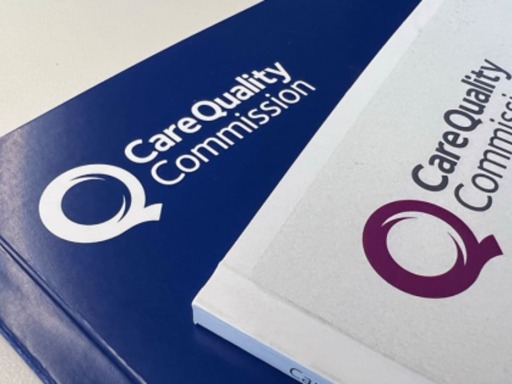Recently, the Care Quality Commission (CQC) released its annual report on the state of healthcare and adult social care in England for the year 2024/25. Perhaps not shockingly, it brings up plenty of concerns about how these systems are letting people down – notably, it contains endless references to the many challenges and inequalities that autistic people face trying to access necessary care.
When reading the report, it becomes evident that health inequalities seen by autistic people are not being prioritised in any part of the system, whether that be in inpatient units, community care, or social care alike.
The many barriers the CQC report evidences
The report particularly highlights how many people from vulnerable groups are falling through the cracks when attempting to get care, including autistic people, with it being a significant struggle to navigate services and unpaid carers and family members being pushed into carrying higher loads of care and advocacy.
Access to GP services was found to be harder for autistic people, as well as other individuals with learning disabilities, mental health conditions, or long-term conditions. This manifests in many ways: inaccessible communication, the lack of reasonable adjustments like double appointments, or inflexible systems that force phone appointments. There is a clear need for greater flexibility and choice to prevent crisis points or miss significant health issues.
Autistic communication needs are not wrong; they are simply different. We must be taken seriously when expressing our needs and our concerns alike. GPs and those working with them must meet us where we are, allow for conversation about accommodations, and practice patience. The CQC found that there is a significant lack of training and understanding amongst professionals—not a new revelation, but one that must be taken more seriously.
Elsewhere in the report, community health services for children and young people are looked at, including autistic young people and those with ADHD. As we know, there is a significant backlog in young people waiting for community paediatric services, and this is particularly true for neurodevelopmental assessments. The CQC found that, of the six areas visited, 3 had waits of 2 years, whilst one had a 10-year wait. This must be seen as unacceptable and is not only a result of increased levels of awareness – it is not the fault of autistic people that funding is not keeping up with demand.
This is a critical moment in care for autistic people.
The CQC also looked into Independent Care (Education) Treatment Reviews (IC(E)TRs) for autistic people (and people with learning disabilities). C(E)TRs happen for all in this population at risk of hospitalisation, or within it, with independent panels that attempt to make alternative recommendations to the hospital or to work out how best to support them. The CQC was particularly looking at those in long-term segregation, a common experience that should never have to be endured.
As expected, the analysis showed that the recommendations of panels had often not been implemented, though they have had some impact in reducing long-term segregation. They also found that discharge planning was lacking, and providers lacked pathways for leaving long-term segregation, with the main contributing factors being a lack of knowledge and a lack of drive or leadership. These issues are symptomatic of the broader system that is not only underfunded and stretched thin, but also baked in ableism and a lack of proper care for autistic people who need additional care.
With the Mental Health Bill so close to passing, which intends to stop sectioning autistic people and people with learning disabilities, this is a critical moment in care.
The Mental Health Bill: multiple issues
The passing of the bill has multiple issues that will only exacerbate health inequalities: a potential for an increase in misdiagnosis in order to section, a lack of support for those with co-occurring conditions, and the pushing of those currently sectioned back into the community without any genuine commitment to better, more funded community care.
No part of the system is ready to support the almost 2,000 autistic people and people with learning disabilities who are currently locked in psychiatric hospitals if they are forced into the community. Whilst many of us do not advocate for inpatient psychiatric care as a correct placement for these individuals, it has to be seen as extremely concerning that there is next to no setup for alternatives. There is a significant risk, backed by the CQC in the report, that these individuals may be held under other legal frameworks like Deprivation of Liberty Safeguards, which will be human rights restricting and place pressure on the legal system.
Pushing these individuals back into the community without better infrastructure will be catastrophic for them and their families. In a system that already struggles to find placements for those who do not need inpatient care, health and social care must consider the realities of what happens next.
Our health and needs must become a priority, as the CQC report shows
Although 72% of respondents said when asked by the CQC that there was significant or moderate progress to care for autistic people and people with a learning disability, 8% reported no improvement, this being the highest amongst the groups asked. Whilst there has been some progress in some regions and aspects of the system, it is evident that this is still not enough.
Health and social care systems, and Parliament alike, need to read and listen to the deep concerns this report raises. Making the proper, reasonable adjustments and changing systems to ensure accessibility must become a priority: this is a life-or-death issue.
Featured image via the Canary
From Canary via this RSS feed


